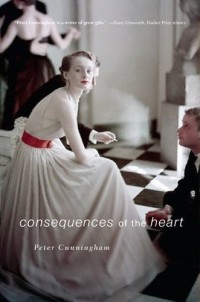Jamrach's Menagerie by Carol Birch
 Wednesday, June 15, 2011 at 2:39PM
Wednesday, June 15, 2011 at 2:39PM 
Published by Doubleday on June 14, 2011
Jamrach's Menagerie begins in a seedy nineteenth century London that is reminiscent of Dickens. Charles Jamrach is a dealer in wild animals. When one of his tigers escapes, ten-year-old Jaffy Brown pats it on its nose and winds up in the tiger's mouth. Fortunately for Jaffy, the tiger has recently eaten and is sated. Freed from the tiger's grasp, the uninjured Jaffy is deemed a natural with animals and is offered a job with Jamrach, where he befriends the slightly older Tim and his sister Ishbel. When Jaffy is sixteen, he and Tim join Jamrach's best supplier, Dan Rymer, who has been commissioned to capture a dragon-like creature called an Ora. To that end they sail away on a whaler and Jaffy's adventure begins.
A fellow with second sight warns Jaffy and the rest of the whaler's crew that they'll bring on bad luck if they capture the dragon and take it on board the ship. The crew should have listened. Time itself changes with the Ora on board; they enter "dragon time." Their thoughts become muddled; Jaffy says "It was like an earthquake in the landscape in my head, and I no longer knew what I could count on." In light of the warning, it's obvious that disaster will strike; it's just a question of when it will happen and how bad it will be. It's bad.
Carol Birch's vivid writing brings this thrilling story to life. Reading the novel is like watching a movie in high definition -- better than that, really, given the clarity that language provides. Birch's style alternates between graceful and gritty, as the scene demands. Part seafaring adventure, part survival story, part tale of the supernatural, with elements of a morality play and psychological study, Jamrach's Menagerie delivers an exhilarating plot and convincing characters. As the climax nears, the story's intensity heightens; at one point I was reading through half-closed eyes for fear of what might happen next. Parts of this novel have been done before (to some extent, the characters' interaction reminded me of my favorite short story, Stephen Crane's "The Open Boat") but I don't think it's ever been done quite like this. Jamrach's Menagerie is powerful, sometimes gut-wrenching, but also insightful. There are traces of a love story here and even a coming-of-age story, but ultimately deeper themes prevail as characters confront their fears and struggle with unimaginably serious moral choices.
Sensitive readers (and those who screen books before letting their children read them) should know that there is a fair amount of salty language in this novel. It's all appropriate to the story (angry or frightened sailors don't respond by saying "oh gosh"); I mention it only because some readers will want to know of its existence.
RECOMMENDED


